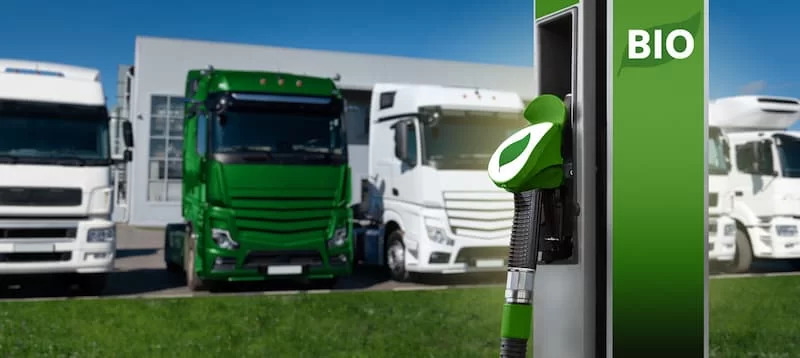While the world strives to address the climate emergency, Morocco is exploring options to make its road transport sector more sustainable. Hydrotreated Vegetable Oil (HVO) appears as a promising alternative, capable of significantly reducing greenhouse gas emissions. This initiative is part of a broader context where Morocco seeks to diversify its energy sources and improve the sustainability of its transport infrastructure. The adoption of HVO could therefore mark a significant step towards cleaner mobility and less dependence on fossil fuels, contributing to national environmental protection efforts and promoting green economic growth.
HVO: A New Generation Biofuel
HVO, or renewable diesel, is made from renewable resources such as agricultural waste, animal fats, and vegetable oils. This process, which includes hydrogenation, removes oxygen from the lipids, transforming the raw material into a liquid similar to petroleum diesel but much cleaner.
Environmental and Economic Benefits of HVO
HVO stands out not only for its environmental performance but also for its economic benefits:
- Significant emission reduction: HVO can reduce greenhouse gas emissions by up to 90% compared to fossil diesel.
- Extended engine life: The clean combustion of HVO reduces residue accumulation in engines, thus extending their lifespan and reducing maintenance costs.
- Independence from fossil fuels: Using HVO reduces dependence on oil imports, aligning economic objectives with national energy security strategies.
Energy Transition and HVO
Morocco is firmly committed to the energy transition, with ambitious goals to increase the share of renewable energies in its energy mix. Integrating HVO into the transport sector can be seen as a key element of this strategy. By adopting this biofuel, Morocco can reduce its dependence on imported fossil energies, thereby enhancing its energy security and supporting its local economy.
Decarbonization of the Transport Sector through HVO
Decarbonization is at the heart of global concerns about climate change. Using HVO in the transport sector offers a substantial opportunity to reduce carbon emissions. This biofuel, by replacing fossil fuels, plays a crucial role in the transition to more ecological practices. This initiative is part of a broader perspective of decarbonizing energy-intensive industries, essential for achieving national and international greenhouse gas emission reduction goals.
Adoption of HVO in Morocco
Thanks to its commitments to international climate agreements and its proactive renewable energy strategy, Morocco is well-positioned to integrate HVO into its energy mix. Initiatives such as the Renewable Energy Law of 2015 and the National Sustainable Development Strategy (SNDD) encourage the use of clean and sustainable technologies.
Challenges and Solutions for HVO Adoption
However, several challenges must be overcome for successful adoption of HVO in Morocco:
- Distribution infrastructure: Developing a dedicated distribution infrastructure for HVO is crucial. Partnerships between private companies and the public sector could accelerate this process.
- Awareness and training: It is essential to inform and train stakeholders, including fleet operators and drivers, about the benefits and use of HVO.
- Government incentives: Fiscal incentives and subsidies could encourage transport companies to adopt HVO more quickly.
Conclusion
The adoption of HVO by the road transport sector in Morocco represents a significant advance towards a more sustainable future. This biofuel offers a concrete solution for reducing greenhouse gas emissions, marking an important step in the fight against climate change. By embracing this technology, Morocco can not only improve its energy autonomy but also encourage green economic growth. The transition to HVO is more than an ecological necessity; it is an opportunity for the transport sector to become a model of sustainability and environmental innovation. The path is now open for sector players to take proactive steps, thus supporting national and global ambitions for a cleaner, greener future.
Related Articles:
- Logistics 4.0 Unleashed: Transforming the Future of Transportation and Logistics
- Paris 2024 Olympics Vs Logistics and Transport Challenges
- Morocco 2024: Key Logistics Developments Unfolding!
- Green Logistics : Towards a Sustainable Future in Transportation and Distribution
- AfCFTA in Morocco : Towards Enhanced African Integration in 2024
- POST-COVID SUPPLY CHAIN – HELPING EUROPE BOUNCE BACK IN AFRICA?
